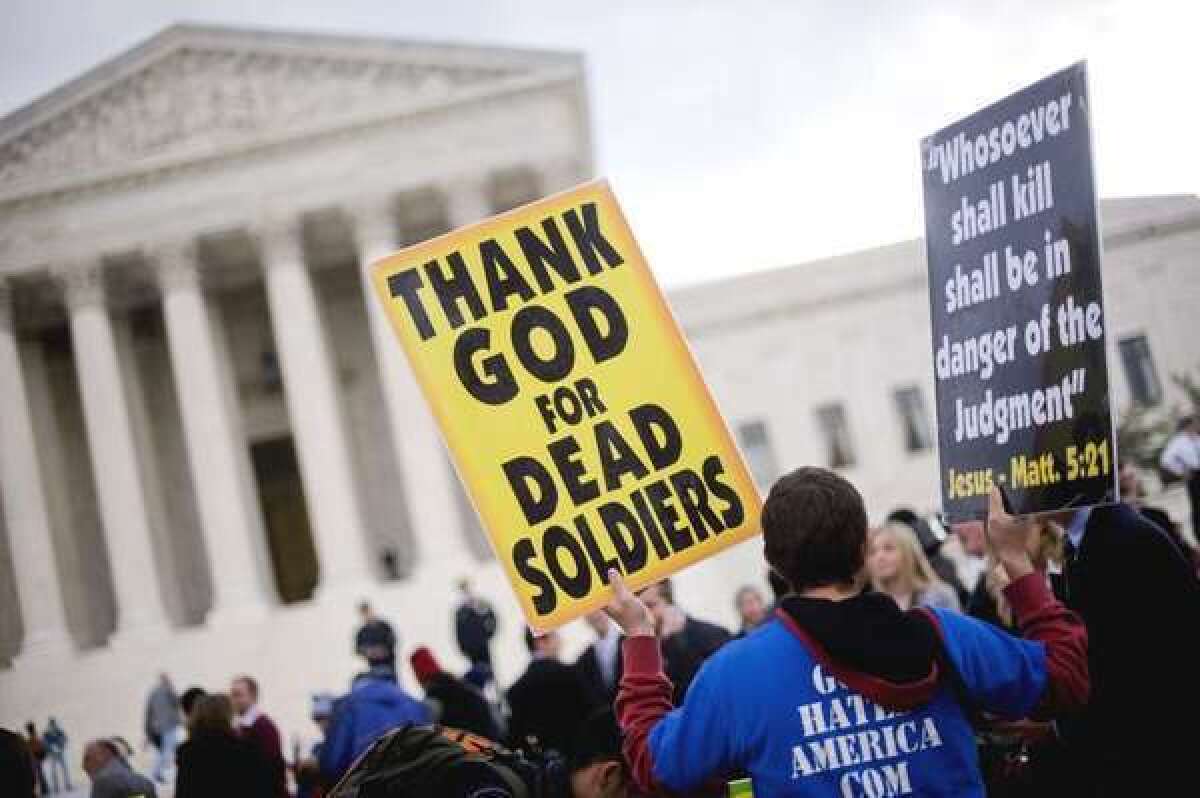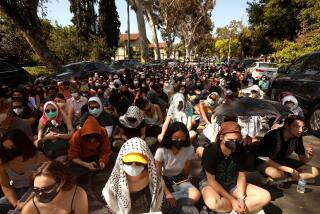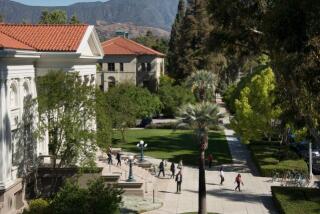Catholic <em>’Sharia’</em> in Pittsburgh

- Share via
In the post-9/11 culture wars over Islamic fundamentalism, American conservatives — properly — have condemned attempts in Muslim countries to punish blasphemy or insults to the prophet Muhammad. It will be interesting to see if they are similarly outraged over what has happened to an art student at Carnegie Mellon University who insulted the pope.
The Pittsburgh Post-Gazette reports that CMU filed criminal charges against Katherine B. O’Connor, 19, and Robb S. Godshaw, 22. The university acted after the Catholic Diocese of Pittsburgh asked it to investigate a parade and carnival at CMU at which a female student was photographed “dressed from the waist up in an ensemble that resembles the clothing worn by the pope. She wore nothing on the lower part of her body, and she had a cross depicted on her pubic area.”
Tasteless? Of course. Even sacrilegious. But criminal? The misdemeanor charge is indecent exposure, which, as the lawyers say, is a “content neutral” offense. And Godshaw apparently wasn’t wearing any papal vestments; the Post-Gazette notes that “on Mr. Godshaw’s Facebook page, he is tagged in a photo taken at the parade that depicts a man wearing only socks and shoes.”
But it’s hard to believe that the university would have pursued the matter if there hadn’t been a complaint by Bishop David A. Zubik, who said that the display was “offensive to me and the church that I represent.”
Zubik’s spokesman later disputed accounts that the bishop had asked CMU to punish the student. But after CMU announced that charges had been filed, Zubik seemed pleased. According to the Post-Gazette, he released a statement acknowledging “that Carnegie Mellon University has taken the time to treat this unfortunate incident in a serious manner.”
Zubik went on: “Once again, and as I have said over these last few weeks, this is an opportunity for all of us to be reminded that freedom of speech and freedom of expression do not constitute a freedom to dismiss or disrespect the beauty of anyone’s race, the sacredness of anyone’s religious belief or the uniqueness of anyone’s nationality.”
As a constitutional scholar, Zubik is a good priest. While it’s true that in 1952 the Supreme Court upheld an Illinois law criminalizing speech that “exposes the citizens of any race, color, creed or religion to contempt, derision, or obloquy,” that decision long has been considered a dead letter. The contemporary understanding of the 1st Amendment is that it protects all manner of hurtful speech, including speech that makes fun of religion.
As the court put it in 1989 in striking down a law making it a crime to burn the American flag: “If there is a bedrock principle underlying the 1st Amendment, it is that the government may not prohibit the expression of an idea simply because society finds the idea itself offensive or disagreeable.”
Chief Justice John G. Roberts Jr. quoted that language two years ago in a decision dismissing a lawsuit against Westboro Baptist Church, the anti-gay group that pickets military funerals.
That, conservatives say, is what distinguishes this society from realms where intolerant Islam holds sway. So let’s see if they express alarm about Catholic “Sharia” in Pittsburgh.
ALSO:
The wrong way for Washington to avoid defaulting
For Wal-Mart, should healthcare be a cost of doing business?
Lindsay Graham blames immigration woes on south-of-the-border ‘hell holes’
More to Read
A cure for the common opinion
Get thought-provoking perspectives with our weekly newsletter.
You may occasionally receive promotional content from the Los Angeles Times.











